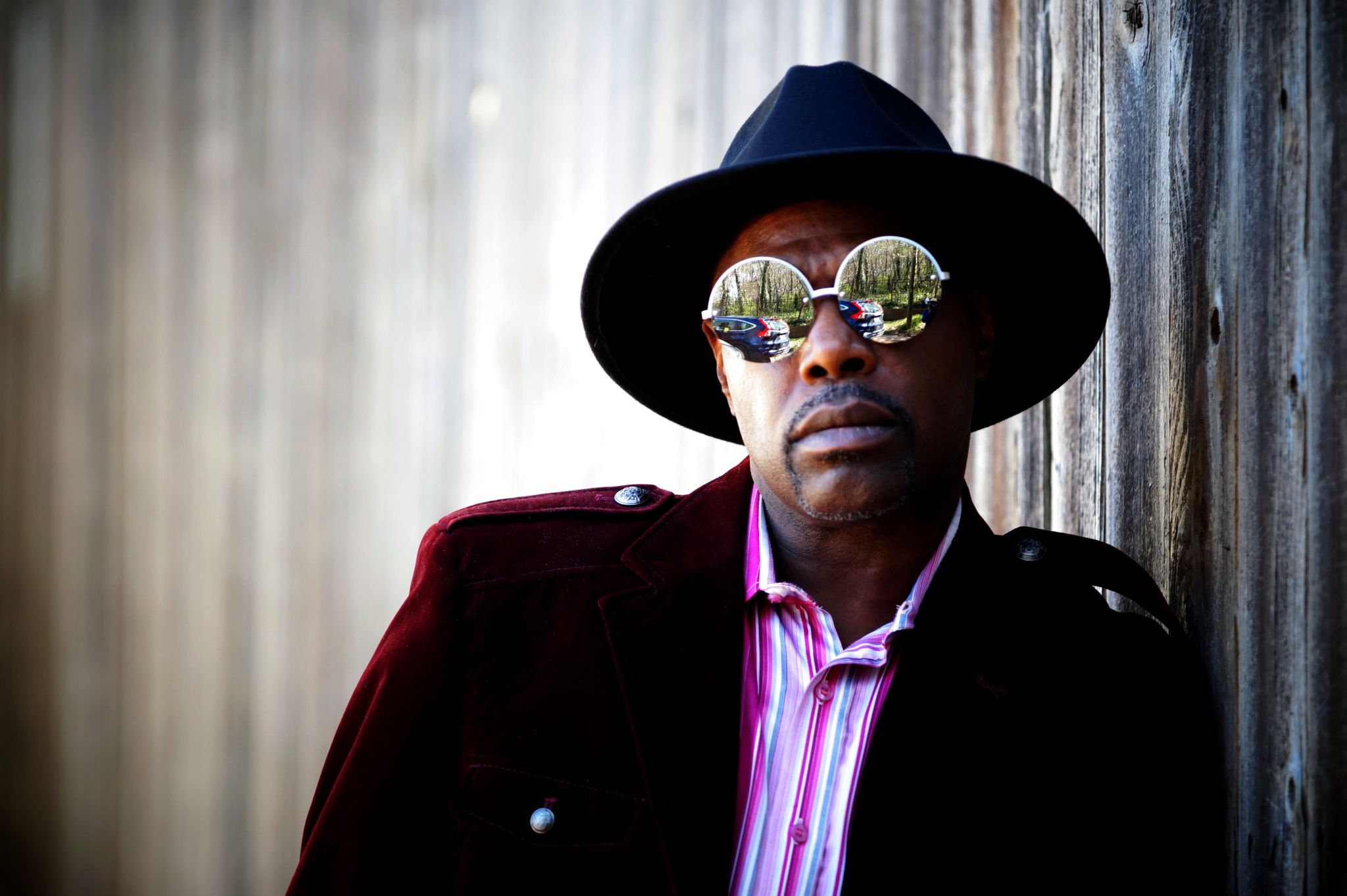“Esquerita: The Other Originator”
Guest Writer: Bishop Hartsel Clifton Shirley
One would think that Little Richard was the originator of Rock and Roll. Surely nobody disputed his word, nor proclaimed it as much as he, but Little Richard would not have been Little Richard without inspiration from somewhere or someone. And part of that somewhere and someone was Esquerita (Eskew Reeder).
Born November 20, 1935 or 1938 in Greenville, South Carolina, Reeder began playing piano at Tabernacle Baptist Church where his mother was the choir director. A self-taught talent, he played piano and sang with the New York-based Heavenly Echoes after dropping out of high school.
The story goes that in approximately 1951, one night in his hometown of Macon, Georgia, Little Richard (before he was named such) was sitting around an all-night diner in the bus station trying to “catch something” (catch a gay man for sex) while watching people get off the bus. Richard’s life changed forever one night when the 6’2”, fifteen-year-old Eskew Reeder got off the bus.
“Oh boy!” is what Richard is on record saying to himself when he saw this grand creature. Reeder was already traveling with gospel singer Brother Joe May (the “Thunderbolt of the Middle West) and was on the famed chitlin’ circuit performing wherever he could.

They went to Richard’s home and Esquerita played “One Mint Julip” on the piano and his host was mesmerized! He left a huge and lasting impression on the future Little Richard. It was under Reeder’s tutelage that Richard learned piano phrasing and how to use his voice, especially his obbligato (the notes you are obliged to sing, rather than the optional “ad libitum” that we know as “ad lib.”)
It was 1953 when Reeder joined the Heavenly Echoes and played on their single “Didn’t It Rain.” Unfortunately, they disbanded two years later. He went back to Greenville where he reinvented himself and created his feverish rock and roll musicianship: wearing heavy makeup and sporting gowns, brocaded jewelry, rhinestone capes, and two wigs that gave him his trademark pompadour.
While playing at the Owl Club, Paul Peek, a member of the Blue Caps musical group, discovered him, and he recorded several demos which eventually led to Capitol Records signing him. Esquerita made a name for himself as a session player to be reckoned with, cutting singles in recording studios in Nashville, Detroit, New Orleans, and Dallas. He released a few singles including “Oh Baby” and “Rockin the Joint,” after which his first and only full album (while alive) was released; it was hailed as “truly the farthest out man has ever gone.”
The period of 1962 to 1967 was very busy for Esquerita, as he worked with many artists who would later find fame: The Jordanaires, Elvis Presley’s background singers; singer/songwriter Allen Toussaint; New Orleans legend Dr. John; and even Jimi Hendrix. He even did a recording session at Motown that got lost.
In 1967, Esquerita decided to change his name to Magnificent Malochi. Under this name he signed with Brunswick Records and in 1968, he co-wrote “Stingy Jenny” which was an answer to the 1936 Bessie Smith song, “I Got What It Takes.”

The 70s would begin the decline in Reeder’s career; however, it started well. He contributed to the song “Dew Drop In” and co-wrote “Freedom Blues” for what was called Little Richard’s comeback album. He played keyboards on the anthem, “Takin Care of Business” by John Hammond.
The musician formed a small band and had a steady gig playing at Tommy Smalls Night Club located on 50th Street and 8th Avenue in New York City. After this ended, he began performing occasionally under a new name, Fabulash, and played in Black gay clubs around the city.
On October 17, 1984, Esquerita appeared with Little Richard at the Red Parrott disco for the Crown Publishing book release of a biography on his long-time friend. At this event, both artists did an impromptu performance of “Thank You, Jesus.” In later years, Richard would confess that he believed Esquerita was “really crazy (in love with) about him.”
A few months before Esquerita died, he was spotted in Brooklyn washing windshields for tips. His father, Eskew Reeder, Sr. reportedly said his son died from complications of AIDS on October 23, 1986.
Esquerita is proof that we can be as fabulous as we want living out loud, and that…

Bishop Hartsel Clifton Shirley is an author, writer, singer/songwriter, and bishop from Waterloo, Iowa. He received his master’s degree in business from the International Business Management Institute in Berlin, Germany.
Currently residing in Atlanta, Mr. Shirley is a National and International Social Action bishop, part of New Direction Overcomers’ International Fellowship (based in Richmond, Virginia).
A multi-faceted talent, Hartsel is a writer, author, and singer/songwriter. A bronze International Society of Poets prize winner, he has penned editorials for the Waterloo/Cedar Falls Courier. His best-selling novel is Three Words, Four Letters, published by Ishai Books. Additionally, Hartsel has charted at #1 several times on the ReverbNation pop music charts.
Inspired by Langston Hughes, Bishop Shirley states, “I write what moves me. There is nothing I can’t write. I just have to care about it so I can write truthfully.”
Hartsel’s current book, The Night Eddie Sallis Died, is based on factual information he uncovered in 2002 about a 1966 jail cell “suicide” in Waterloo, Iowa (his place of birth). This revealing and riveting book pulls back the curtain on racism and police brutality. The author emphasizes, “These truths make Iowa a state not to be taken lightly–nor forget.”
Hartsel’s upcoming works include Three Words and Four Letters, the second and third installments of his first novel, and his third music project, Rebel With A Cause.
Email Bishop Shirley at hartselshirley@gmail.com
I invite you to listen to Esquerita:
“Rockin’ the Joint” https://www.youtube.com/watch?v=rcWG4NG5Rjc
“I’m Battie Over Hattie” https://www.youtube.com/watch?v=8DgfStBwI98



Leave A Comment